Kawasaki, Japan, April 04, 2012
Fujitsu Laboratories Limited today announced the development of a power conservation system control technology that reduces overall power consumption in container data centers by closely coordinating the operation of servers and air-conditioning (A/C) systems.
The overall power consumption of container data centers can be effectively reduced by cutting the electricity usage of A/C equipment through external ambient air and other measures. At the same time, IT equipment power consumption can be cut by employing servers that lack internal fans. In the conventional approach to A/C management, A/C systems and servers inside the containers are controlled independently, thereby making it difficult to efficiently cool fan-less servers. By utilizing Fujitsu's newly developed power saving system control technology, which coordinates the operation of servers and A/C systems, it is now possible to employ fan-less servers and achieve across-the-board power saving in container data centers. Prototype models of container data centers equipped with this new technology were able to achieve a reduction in total energy consumption of up to 40%.
Background
With the spread of cloud computing, the scale of the market for data centers is growing, as is the amount of energy consumed by these data centers. As a result, improving the energy efficiency of data centers presents a significant challenge. On the other hand, in order to respond to the increasing need for data centers, the industry has seen progress in the commercialization of container data centers in addition to conventional large-scale data centers. These container data centers require low up-front investments, can be quickly constructed, easily scaled and transported, and offer a high degree of freedom in installation.
The amount of power consumed by a container data center depends on the power requirements of the container's A/C equipment and IT devices, such as servers. In recent years, advancements have been made in the power efficiency of A/C equipment due to the use of external ambient air and other methods. Moreover, the power consumption of internal fans used to cool servers accounts for a large percentage of the overall electricity consumed by container data centers. To further reduce power consumption, container data centers are adopting servers without these internal fans, as cooling through the use of efficient, large-scale container A/C fans has proven to be extremely effective.
Technological Issues
In conventional container data centers, data center A/C systems are operated without regard to server temperature information. This has led to unnecessary power consumption resulting from excessive server cooling. It has also been difficult to employ fan-less servers because of situations in which insufficient cooling causes decreased performance or server shut downs due to the overheating protection features of CPUs.
Newly Developed Technology
Fujitsu Laboratories has developed a power saving system control technology that uses server information to manage container A/C fans. This container A/C fan control technology is described below.
1. CPU temperature and server power consumption information to minimize across-the-board container data center power consumption
When a CPU's operating temperature becomes too high, the amount of power consumed by a server increases as a result of the impact of the CPU's leakage current. Conversely, by trying to lower the CPU temperature, greater power is consumed by the container A/C fan. The technology controls the container A/C fan to achieve an optimal CPU temperature that will enable the amount of power consumed by the entire container data center to be minimized (Figure 1).
2. Server CPU temperature and server location information to prevent system from reaching an operating temperature that decreases CPU performance
In minimizing the overall power consumption of a container data center, local increases in CPU temperature can lead to operating temperatures that begin to negatively affect CPU performance. The technology controls the container A/C fan to ensure that the system never reaches an operating temperature where CPU performance is compromised (Figure 2).
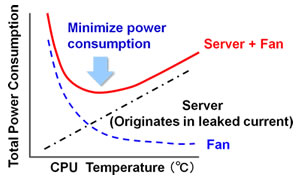 Figure 1: Control Technology to Minimize Overall Energy Consumption
Figure 1: Control Technology to Minimize Overall Energy Consumption
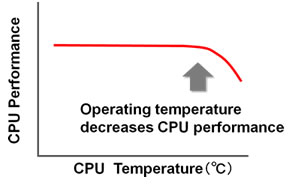 Figure 2: Control Technology to Prevent Decreased CPU Performance
Figure 2: Control Technology to Prevent Decreased CPU Performance
This technology enables the adoption of servers without internal fans, allowing for the overall power consumption of container data centers to be reduced. Figure 3 is a photo of a prototype container data center and figure 4 is a schematic of the container's contents. When the external temperature is between 10°C and 35°C, the container's air conditioning fan takes air through the external intake vent and moves it inside the racks. The warm air from inside the racks is then released from the exhaust vent. When the external temperature exceeds 35°C, an evaporative cooling system cools air to 35°C or below before moving it with the fan. Conversely, when the outside temperature is below 10°C, warm air being released from the racks is passed through a damper and returned to the air intake vent where it is warmed to 10°C or higher before being dispersed by the fan.
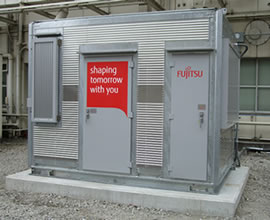 Figure 3: Prototype Container Data Center
Figure 3: Prototype Container Data Center
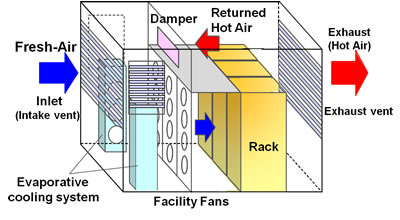 Figure 4: Container Data Center's Contents
Figure 4: Container Data Center's Contents
Results
The results of verification testing on this technology prove that energy consumption is reduced by up to approximately 40% compared with conventional container data centers consisting of servers with internal fans (Figure 5).
Tests using prototype models of container data centers equipped with this new technology showed a power reduction effect of up to 40% compared to conventional container data centers configured using servers equipped with internal fans.
In addition, even if a CPU's protection features kick in to safeguard against decreased performance or server shutdowns as a result of rising temperatures from sudden increases in CPU load, the technology can rapidly elevate the cooling fan's revolution speed and cool the system in response to the CPU temperature increase. This enables the server to maintain both its service levels and low-power operation.
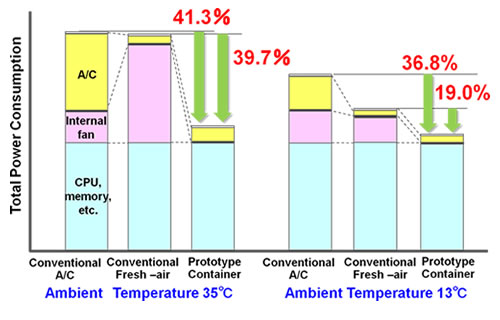 Figure 5: Power Reduction Effectiveness
Figure 5: Power Reduction Effectiveness
Future Plans
Fujitsu Laboratories aims to employ the technology in commercial applications during fiscal 2012, and will move forward with tests using prototype container data centers in environments with varying temperature and humidity. In addition to optimizing its control algorithms, the company will continue to develop advanced power conservation system control technologies, such as predictive control technology that performs optimal control by anticipating servers' computational loads based on delivered services.
![]() E-mail: container-dc@ml.labs.fujitsu.com
E-mail: container-dc@ml.labs.fujitsu.com



